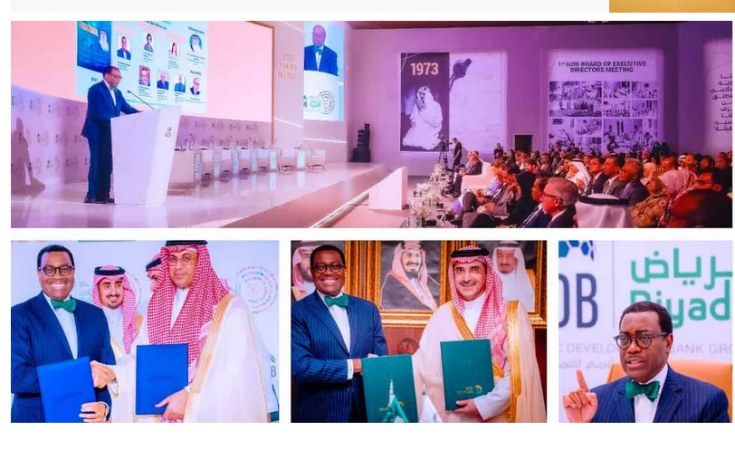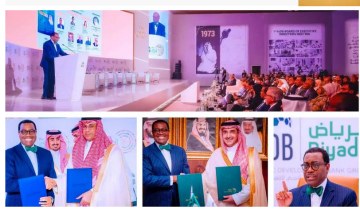"The problem of financing will remain unresolved so long as the rules and practices of global economic and financial governance obstruct access for our countries to sizeable resources on sustainable terms."
The above pronouncement by Senegalese President Macky Sall a year ago encapsulated the resounding plea echoing across Africa for a reshaping of the global financial architecture to better serve the continent's developmental aspirations.
The pronouncement by President Sall, then Chairman of the African Union, at the 2nd Summit on Infrastructure Financing in Africa in Diamniadio, Dakar, resonates more than ever today.
The current global financial architecture puts Africa at a significant disadvantage. Many African nations are burdened with debt and struggle to access concessional financing.
The President of the African Development Bank Group, Dr Akinwumi A. Adesina, has been a vocal advocate, highlighting the mounting debt crisis and the hurdles in accessing concessional financing.
At the Doha Forum in December 2023, Adesina said, "Africa's total external debt, estimated at $1.1 trillion in 2022 and predicted to reach $1.3 trillion by the end of 2023, gives great cause for concern. Twenty-five African countries have unaffordable debt or are at high risk of unaffordable debt. We need a multilateral approach in order to understand the structure of the debt."
This struggle to access emergency financing windows means African countries unable to cope with extraordinary situations like natural disastAccording to the United Nations, Africa will need $1.3 trillion yearly to finance its Sustainable Development Goals by 2030.ers. Also counting against the continent are the highly exaggerated "risk of investing in Africa," the distortion of international trade rules caused by internal or export subsidies put in place by developed countries, or border taxes that penalize African exports. According to the United Nations, Africa will need USD $1.3 trillion1300 billion dollars yearlyeach year toin order to finance its Sustainable Development Goals by 2030.
The African Development Bank Group is dedicating its 2024 Annual Meetings to the need for a reconfigured global financial architecture as the main step towards structural transformation. Shareholders and other regional leaders will also discuss Bank Group's contribution towards Africa's socio-economic transformation in its 60 years of existence.
The Annual Meetings, scheduled for 27-31 May in the Kenyan capital, Nairobi, serve as a pivotal platform for dialogue and action. It is under the theme "Africa's Transformation, the African Development Bank Group and Reform of the Global Financial Architecture."
Akinwumi Adesina has said: "The global financial architecture needs to be more responsive, inclusive and accountable. It needs to be redesigned to speed up development worldwide and particularly in Africa."
He stresses that the current global financial architecture hinders Africa's development in more ways than one.
The challenges are manifold. Insufficient resources hinder Africa's growth and development agenda, compounded by inadequate climate finance amidst escalating environmental threats. Africa, which accounts for only 3 percent of global carbon emissions, suffers disproportionately from climate change. It currently faces staggering annual losses of $7-$15 billion. These are expected to soar to $40-$50 billion by 2040. The Bank estimates Africa's climate finance gap at $213 billion annually up to 2030. Furthermore, orderly debt restructuring remains elusive, exacerbating the debt burden on economies.
The inequitable distribution of global financial resources in favour of rich countries - countries that need them least, exacerbates the continent's plight, as evidenced by the $33 billion or 4.5 percent of the $650 billion it received in Special Drawing Rights issued by the International Monetary Fund. This is also evidenced by the unequal budgetary responses to assist developing countries during crises such as the Covid-19 pandemic.
Africa received only $89 billion or 0.5 percent of the total $17 trillion budgetary response to the pandemic (the total response amounted to 19 percent of global GDP).
Africa faces mounting poverty, job losses, and climate vulnerabilities, all of which are exacerbated by the current system. The Bank estimated in 2021 that 29 million Africans had fallen into extreme poverty and around 22 million jobs had been lost due to the Covid-19 pandemic. According to the Global Climate Vulnerability Index 2022, nine of the World's 10 most climate-vulnerable countries (Chad, Central African Republic, Eritrea, Guinea-Bissau, Democratic Republic of Congo, Sudan, Niger, Afghanistan, Liberia and Somalia) are in Africa. And yet Africa receives less climate funding than any other region of the World.
The Nairobi meetings signal a pivotal moment for African countries to assert their priorities and demand equitable treatment within the global financial architecture.
As Mr Adesina wrote in an opinion piece for the French newspaper Le Monde in 2023: "The international financial architecture has an essential role to play in tackling global food insecurity, climate change, ever-increasing debt and the disruptive effects of Covid-19. It should also contribute to improving preparedness for a future pandemic. These things are essential for a future that is already with us."
African countries need to leave the Nairobi gathering equipped for an active role in global discussions on system reform, particularly in conversations concerning international financial institutions.
Beyond addressing immediate challenges, the discussions must pave the way for long-term systemic reforms encompassing international taxation, particularly since African countries are most penalized for tax evasion, fraud, and other illicit tax transactions. Africa also remains the only region that lacks liquidity reserves to protect itself against shocks.
The Nairobi Meetings should be the starting point for Africa to demand greater justice. As the United Nations Deputy Secretary-General, Amina J. Mohammed, has said: "The world is not facing a crisis of resources, but a crisis of sharing."



